How to prevent your band's gear from getting stolen, and what to do if it happens?
- ballystudios

- Oct 1, 2021
- 18 min read
Updated: Dec 21, 2024
by Jimmy Mulvihill. 1st October 2021.
(Note: throughout this post are affiliate links to the items that we suggest bands can buy to help them march on in the event that their gear is stolen. If you buy items directly from those links, we'll earn a little commision, and you'd be helping support a small independent business by doing so.) One of the most depressing things about following so many bands on Twitter are the tweets that pop up from time to time, as regular as clockwork, from bands sharing the information that their tour van has been broken into and that they’re stranded in the middle of a tour without any of their gear. It’s genuinely heartbreaking, not least as most of the gear will be sold by the thieves for a fraction of it’s value by someone without any conscience, who has no concern for not only the financial impact on the band, but also the trail of emotional destruction that their callous act has caused them. Each and every time that we see these posts our hearts sink, and it happens too often.
Without exaggeration we've heard of 150+ incidents in the last decade and a half, at least. If you’re in a band, and you’ve not planned for how to both stop this happening to you or what to do if it does happen, now is the time to act. A few hours of work now could literally be the difference between your band being able to recover from such an event and it derailing the band altogether. It’s hard to invest all of your time, energy and a lot of money into the band, and to then go through the emotional roller-coaster of having all of your personal equipment stolen without it affecting the emotional dynamics of the band. This is by far the biggest aspect of the subject that bands underestimate. If it was meant to be one particular band member that was meant to be guarding the gear when the act happened, suddenly the rest of the band can feel angry and resentful towards them, or even betrayed. That member could feel incredibly guilty, and I’ve seen first hand how bands that were close friends had wedges put between their friendships from having their gear stolen. It’s not to be underestimated, the repercussions of such an event happening can be far reaching, so here’s our guide that helps you to be as prepared as possible for this event.
1) Accept that it’s a risk that can never be eliminated completely. I know, I know, you’re way too smart to let this happen to you, right? Wrong. Many musicians forget the hard grind on tour and how exhausting everything can get at times, and this is exactly when thieves will strike. If you're on guard 99% of the time , thieves are happy to wait until that moment that you're not. You need to be lucky all of the time, they only need to be lucky once with a 2 minutes window of opportunity, and the whole tour is disrupted. You drive for 5 hours to get to the venue, getting lost on the way, now you’re running late. You finally arrive at the venue in a city you’ve never been to, you load the gear out, you soundcheck, you get nervous watching the other bands play while you wait to go on. You’re sorting out guest-list, selling merchandise, chatting with the sound and lighting engineer, you’re chatting to journalists. You haven't had time to eat properly, and last's night's sleep was sketchy at best. You play a great gig, and now the venue needs you to load the gear out so that they can clear the stage, at the same time that people want to buy albums and t-shirts from you You pack it up in your van, and now’s the time that you finally get to have a few minutes to yourself after working from 10am - 11pm.…… whilst all of the equipment sits in the van outside. 500 gig goers are coming and going around the venue, and none of them paying any attention. Anyone who’s ever been in a touring band before knows how difficult it is to bring extra people along with you on tour that are not 100% necessary. The cost and the loss of space in the van needs to be justified. It’s also very hard to ask a person to sit with the van while the rest of the band members enjoy themselves inside. If the band is sitting in the van for 6+ hours a day, the last thing they’ll want to do is to sit in the van in their free time, and so it’s inevitable that there will be time that the van sits there empty. Thieves have no problem at all sitting around for hours until a time that a van is unguarded, and they also know that a lot of bands have thousands of pounds worth of equipment with them. The music venue may have 3-4 bands playing in it a night, with bands that are likely be having a few drinks after the gig, distracted and tired. Very few of them live locally. This is the reason that this happens so often to bands: they’re prime targets. If they do get robbed they may need to be in a city 100+ miles away the next day, meaning they may not have time to report the theft properly until a few days later, giving the thieves even more time to shift the equipment on. Thieves also have no problems sitting on the equipment for months/years at a time to wait until the trail goes cold, and seeing how many musical items actually increase in value with time, the equipment that they rob may actually appreciate in that time. You won’t get the same with consumer electronics which need to be sold on quickly before they becomes obsolete All of the bands above were targeted specifically for these reasons, and others. If you’re in a band yourself, now is the time to accept that the same will likely happen to you at one point. It’s not a case as to whether you will have something stolen, but when and how much? It is how it is.
Work out in advance what equipment you absolutely could never be parted from, and consider whether it’s wise for you to be bringing it on tour with you at all. Your 1966 Gibson 345 may sound incredible in the recording studio with perfect acoustics and a £1,500 Neumann microphone recording it, but the difference will be a lot less noticeable in a music venue that holds 200 people, with unpredictable acoustics, through a £70 SM57 into a Soundcraft desk, manned by someone getting paid £50 for 4 hours. Try to balance the need for the band to sound great, with the risks of what you can bare to lose.

2) Don’t blame yourself if it does happen. This is vital. None of the bands above were responsible for their equipment being stolen. None of them. The fault lies with the perpetrator and the perpetrator alone in all of the above cases. Make a decision as a band ahead of time that you won’t take out your frustrations on each other if it happens, as the event can be stressful enough as it is without the band attributing blame for it to each other. Each person within the band should make a deceleration that the band as a whole is responsible for keeping the band’s gear safe, and that blame should also be spread between you too. 3) Buy insurance. This is obvious, it’s a boring task, but if the worst happens and you need to make a claim, you’ll be so glad that you insured the equipment before it got stolen. If you think that you can’t afford insurance, then you certainly can’t afford to replace everything without it. In the past I’ve spoken to bands (in about 2015) who were able to get £5,000 of cover for their instruments for about £130-£200 a year, depending on the circumstances of the band. That’s an amount that is small enough that each band member can kick in £30-£50 once a year and forget about it. Don’t consider whether it’s worth it, as there’s a huge difference between your state of mind when you’re planning for it as a hypothetical event, and your reaction to it if it does happen. Insurance is worth it, get it sorted now and have one less thing to worry about. Be very careful to read the policy thoroughly, and if there is an aspect of it that you’re not sure about, make sure that you ask questions. Here are some other points that it’s important to confirm in advance: - Are your instruments insured for their actual value, or their replacement value? There’s a difference here. You may have a bit of gear that cost you £50, for which you have the receipt for, but that might have been an incredible bargain, or it may now be very difficult to track down a replacement item for it, especially if they’re not being made any more. Under the circumstances you may need to pay £200 to replace it, and in this case you should check with the insurance company in advance that they're happy to cover this £50 item for a £200 payout. Many of them will be happy to do this, so long as you pay a slightly increased rate for it. Bally Studios usually pays insurance rates of about 1.5%-2% of the value of the goods insured each year, so in this case the extra £150 of insurance will cost about £2.25-£3 a year. If that bit of equipment is vital to the band's sound, the cost of half a pint of beer a year will protect it. Ask as well if they can offer new-for-old insurance cover, as many will. The last thing you want is for the insurance company to replace your well maintained and serviced 20 year old bass head with another 20 year old bass head which has been driven into the ground by a previous bands. If your current gear is in great nick, insist that it's replaced with another item in great nick that comes with a guarantee from the manufacturer. This will not be offered as standard, you may need to ask for it at the time that you set up your policy.
- Are the circumstances of the policy accurate? Check to see if items are insured only at a set location, or if they’re also covered when you’re travelling around. Some policies make it a requirement to have a certain type of lock on the van, or that the van must be stored in a secure packing space, which can be hard to find when you’re only in each town for a few hours. Check these terms, and make sure that you keep to them.
- Does the policy require you to prove ownership of the items? If so, you should contact the insurance company in advance to confirm what this is? Some accept photos of items as proof, some need receipts, some will accept a repair note for amplifiers as evidence, etc. Each company can have a different policy, so get in touch with them and check that you’re getting the protection you are paying for.

- Contact the insurance company in advance and be honest about the circumstances of the tour. You should NEVER lie about the circumstances of the equipment. If they offer you a cheaper price for the equipment being in an alarmed van, and your van doesn’t have an alarm, don’t pretend that it has one. (Seriously, I’ve spoken first hand to a band that did this, and it did NOT end well.) Insurance is only worth it if it actually pays out when you need it. If you’ve not given accurate information to the insurance company they are under no legal obligation to make any payments to you in the worst case scenario, so make sure that your insurance policy is accurate and complete. Insurance is only worth paying for if it protects you, so make sure it does.
4) Plan in advance for what happens if it does happen. a) Take photos of everything, including of the serial numbers.
This is a quick step and it’s hugely helpful both in making the equipment difficult to sell for any thieves, and also to let people know what to keep an eye out for. If any of the guitars have any damage on them, take photos of it as it can be use to identify equipment. Put your ID next to the piece of equipment, like a driving license or a passport, and take a photo of the piece of equipment next to it, so that you can prove that it really does belong to you. Back up these photos on an online photo hosting platform that you can access remotely, so that if the worst happens you can quickly put a link to the single photo album with photos of all of your equipment within it. All you need to do if you need to get word out there about the theft is to set the privacy settings to “Public” and to share it on you social networks, and everyone can now get full access to the folder.

b) Create a PDF of the full list of everything as well, with serial numbers.
It’s easy for your brain to go blank when faced with the news that all of your band equipment has been stolen, so it’s best to create a list in advance of all of the gear you have with you whilst it's there for you to make an inventory. Number each of the items on the list, and if any of you equipment that you have is not included in the theft you can make a note of it in any announcements that you put on social media. Make sure that the serial numbers are included in the list so that if anyone sees any of the items in nearby car boot sales/pawn shops, they can check themselves if the equipment is yours.
c) Get a list of people you should contact.
Get that list out to as many people as possible if a theft does happen, and ask people to share it. This includes the local police force where the theft happens, local Facebook groups that cover that geographical area, local musician forums, and ask the venue to share the list from their social media account too. Do a Google maps search for pawn shops/guitar shops/cash converters in the city that the thefts happened in, and send the list to them by email. Go to eBay, Reverb and Gumtree and set up message alerts for search terms relating to the equipment that was sold, so that if anyone does put the equipment up for sale on there you’ll be notified.

5) Have a list of back-up gear that you can use if it does happen, and rehearse at least once for this eventuality.
You may have spent years building up the bands gear, and it may be very precious to you, but now it’s all suddenly gone in one fell swoop. You probably won’t have as much time needed to replace all of the items as you want, especially compare to how long it took you to buy them in the first place, and you may need to buy replacement gear that gets you through the tour that is “good enough.”
It’ll take quite a bit of research and time to work out what equipment will fit the bill, and what compromises you’re willing to accept, so why not do it before the event so that if you are a victim of a theft you’ll know what gear you like and what you don’t? I mean, it’s not exactly an arduous task, it just involves going around music shops and trying out cheap gear.
Apply for a credit card that has no/little annual fees with a good spending limit on it, and put it somewhere safe. Keep the details of it, and if you need to buy £1,000 worth of gear to get you through the rest of the tour, you’ll be ready to buy the replacement gear with no delay, which could be vital if you’re in the middle of a tour. The last thing you want is the credit company asking how desperate you are to borrow this cash after the event happens. Doing it in advance allows you to shop around for a good deal.
If you’re a band that uses lots of effects units, work out how many of them you REALLY need, and what is the absolute minimum that you can get away with. Even if your whole sound is based about guitar pedals, have at least one rehearsal session where you experiment in stripping each of them away to see which ones you can do without in an absolute worst case scenario. It may be better that your audience gets to hear you with a stripped down or different sound rather than not hearing you at all, and the less stuff that you need to buy in advance to get the band back out on the road, the less disrupted the tour will be. If you have a singer that also plays rhythm guitar, do a rehearsal session without them playing to see how it sounds. The songs may sound different without an additional rhythm guitar, but at least this way you’ll know that it’s an option for you to play this way if needs be, and the value of knowing that you have options in your favour is really important in how quickly a band can recover from such an event.
If you’re the victim of a theft your head will likely be all over the place, and at that moment you now have to make decisions in a short period of time about things you’d never considered before. Take the time beforehand to work out what is essential to your band and what isn’t. Your drummer may have a 7 piece drum kit with 3 rides and 4 crash cymbals, so have one rehearsal with them using one rack tom and a floor tom, a single ride cymbal and a single crash cymbal. If they manage to get through it, this will give them the option to borrow another band’s equipment or to use the house kit if they need to.
Contact the bands that you know that you’re going to be playing with on tour in advance and connect with them a bit. Interact with them a bit on social media, ask them if you can include them in your flyers if they do the same with theirs, and just build up a dialogue in general with them, This could make all of the difference to how receptive they could be if you need to borrow anything from them in the case of an emergency.
If you use loads of individual guitar effects, check out how many of them can be replicated with a single multi effects unit in the case of an emergency. As Johnny Marr himself can testify to, you’d be surprised by how much they've improved in the last couple of years. If you've got x8 pedals that cost you £120 each to buy, getting a £355 multi-effects could help you get back on the road in no time.
Make a full list of everything that you would need to replace, as well as saving a link to where to get them so that it’s there if you need it. Seriously, you’d be surprised as how far a bit of money will go now. The following will set you back just over £1000, and it could be the difference between you completing the tour with a different sound, rather than not completing it at all. Better still, if promoters and record labels hear how quickly you were able to recover from such an event, you’ll be marked out as a band that is prepared and organised, factors which never hurt any band looking for investment. Click here to buy
Click here to buy the Harley Benton TE-20MN from Thomann.
With prices calculated in Oct 2021: - x2 electric guitars, the Les Paul and Telecaster, (discounting the hollow bodied one), - x2 guitar amps that are big enough for small venues, which can be mic'ed up for bigger venues as well - an electric bass guitar. - a full drum kit with hardware and added cymbals, comes in at £1041, delivered. The guitar amps have the effects built into them, and so now all that you need to do is borrow a bass amp, (pretty standard practice at small/mid sized venues) or spend £300 on a new one to replace your stolen one, and you're back on the road. If you have a speaker emulator in a guitar pedal/multi-effects, ask your rehearsal studio if you can try to run your guitar through the effects, through the speaker emulator and then direct into the PA to see how it sounds. If it’s not too bad it’ll then be an option for the band to forgo amplifiers altogether in a worst case scenario, so long as the venue has no problem with the band sending the signal direct from the guitar effects into the PA system. That'll bring the costs down by another £338, to just over £700. Is this gear as good as the stuff you had stolen? No, but then that is to be expected with equipment that is literally one-fifth the cost. However, it is a lot better than gear this price has any right to be, and it will enable you to do your gigs. I've worked with numerous bands that played guitars worth more thna £1,000, who needed to borrow a guitar for a half hour here, or a day or two there whilst theor guitar was being repaired, and their reaction to borrowing a cheap £140 guitar from me went from outright objection, to "it's not actually that bad, you know......"
That's the difference between being a band as a leisure pursuit, and doing it as a job and going on tour. There's a HUGE difference between knowing that £700 will get the band back on the road with a 5%- 10% drop in sound quality, and having to cancel the tour altogether. When you're on tour you need to find a way to get the job done even under the worst of circumstance, and getting your equipment stolen from you definitely comes under that category. It’ll be a compromise, of course, but all of this is a compromise! None of this is meant to be perfect, it’s all about making the best of a bad situation.
In any case, the factors for why you spend more money on better gear diminish for this situation. Whereas better equipment will last longer, you only need to use this equipment when you can’t access your usual equipment, so it won’t need to last as long. A slight loss of tonal quality (if any) is better than not being able to play the gig at all, and whilst playing better equipment is undeniably more enjoyable, playing a gig with cheaper gear is more enjoyable than disappointing your fans by not being able to play. No doubt bands like to be seen with their favourite branded equipment, and having “Harley Benton” on the head-stock is no substitute for having “Fender” on there instead, but this is a detail that will be lost on 95% of your audience. Most of them couldn't card less what gear you use. When you look back on photos of you playing those gigs in the future, you can be proud that you made the best of a very difficult situation, and made do with what you had, and with gear that was not your first choice rather than throwing your hands up in the air and accepting defeat . As a general rule. it's always handy to have a spare guitar to hand, just in case.
It may also be advantageous for bands to have a complete back up of all of their equipment that they can use already purchased, which can be stored somewhere accessible so that if the band’s back-line equipment was stolen, they have a replacement item for everything that was taken to hand. You can also consider whether it’s worth making an agreement with another band(s) that you get on with, where you can each have each other’s back in the event of a theft and you agree to lend them your equipment if they do the same in return? Chat to the other bands that use your local rehearsal studios to see if there’s any other bands that want to do this too. If 4-5 bands come together you can buy £1000 of gear and split the costs 4/5 ways. £200-£250 isn't much to pay to future-proof yourself from needing to cancel a tour.
6) Consider whether it’s worth buying GPS trackers for the most expensive items.
We’re living in the 21st Century, so it’s now possible to buy 4 Apple GPS trackers for less than £100, or one of them for £29. You sync them to your phone, and if the worst were to happen you can track in real time where your gear is. Hiding it inside of certain bits of equipment, such as inside a guitar, means that even if the thief works out that your gear is tagged it'll take time and effort for them to find it, and they’ll only have the time to search for the GPS tag in a secure location, which is likely to be the place where they store the fruits of their thievery. Even if they find the GPS tag and remove it, there will still be a record of where it was up until that point. The GPS tag will record that the gear was sitting in your stationary van, then it'll record that it was moved when it was stolen, and then it will record that the equipment’s location stopped moving, which will likely be at the thief's storage location. That location has now been tagged and is on record.
Even if they find the GPS tag and remove it, you’ll still be able to follow the trail for it on the app and you can even give the GPS tag locations to the police who can sync it to the records of public CCTV cameras, meaning they know the exact time to look at CCTV footage to find a photo of the thief. Records can also be crossed with phone records as well; if the thief's phone GPS and your equipment's GPS matched each other for a period of time then it's pretty incontrovertible proof that they had your gear. There’s nothing that the police like more than a quick case to solve and the positive publicity of them doing so, and having a GPS tracker on your equipment puts your theft in the “easy to solve” camp.
This video shows how they can be used to track down items:
and here is an example of how much they cost.




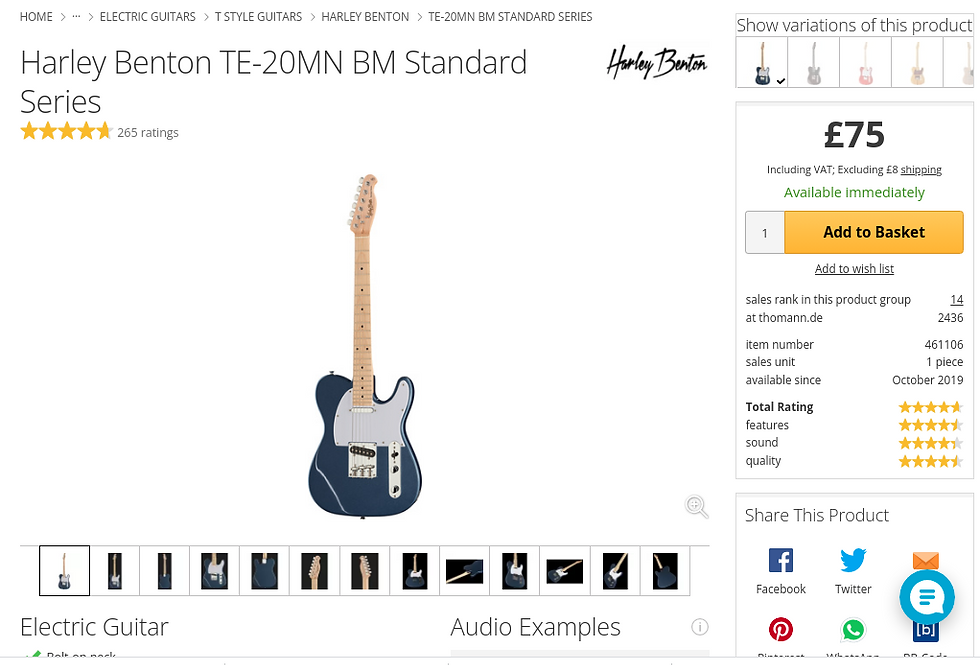
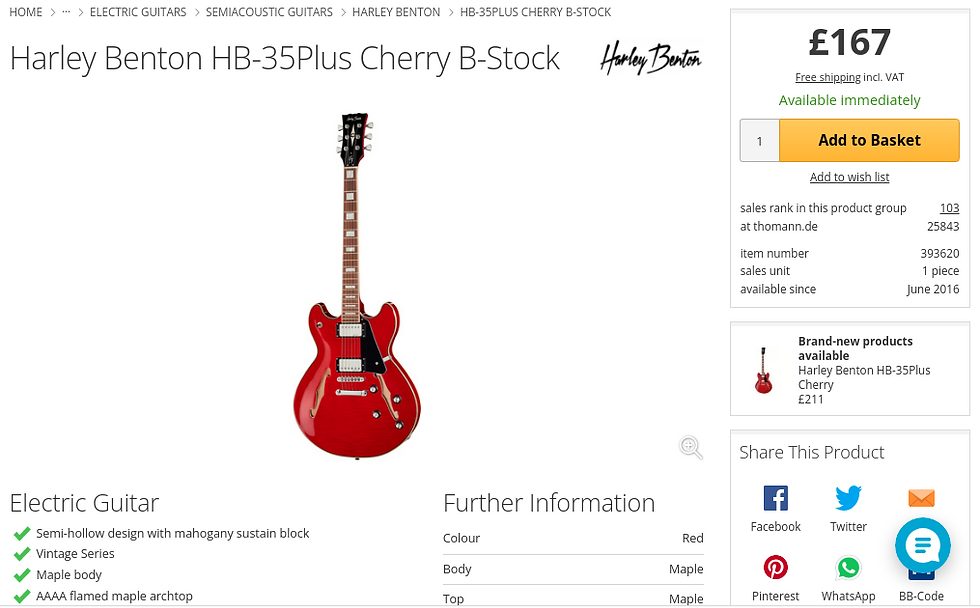
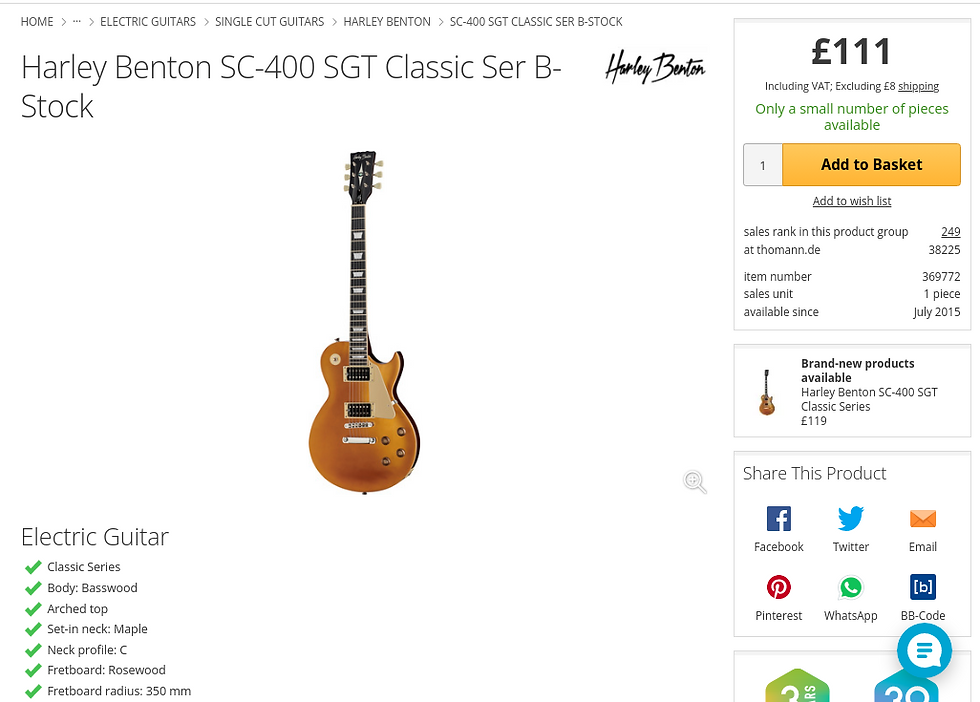

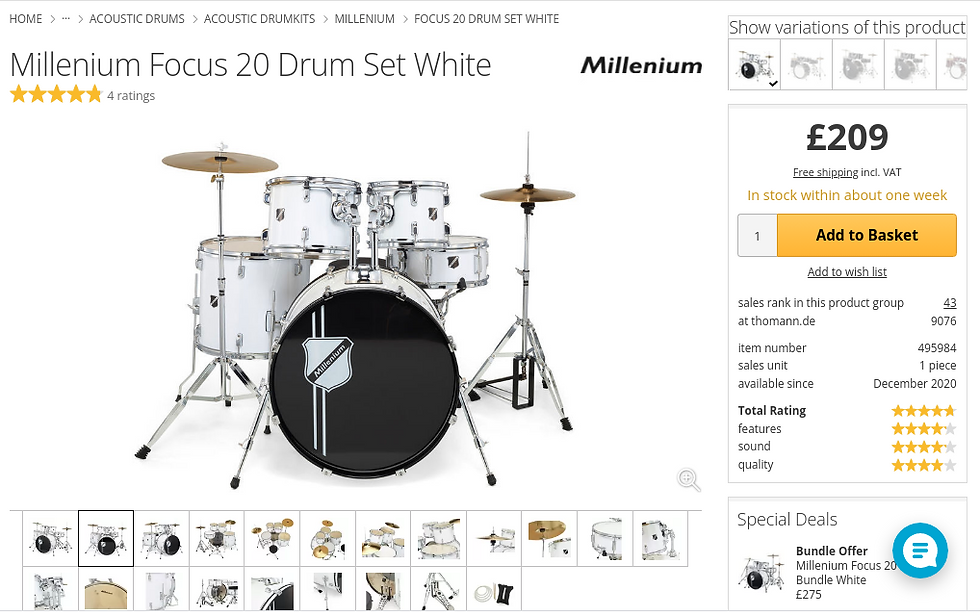
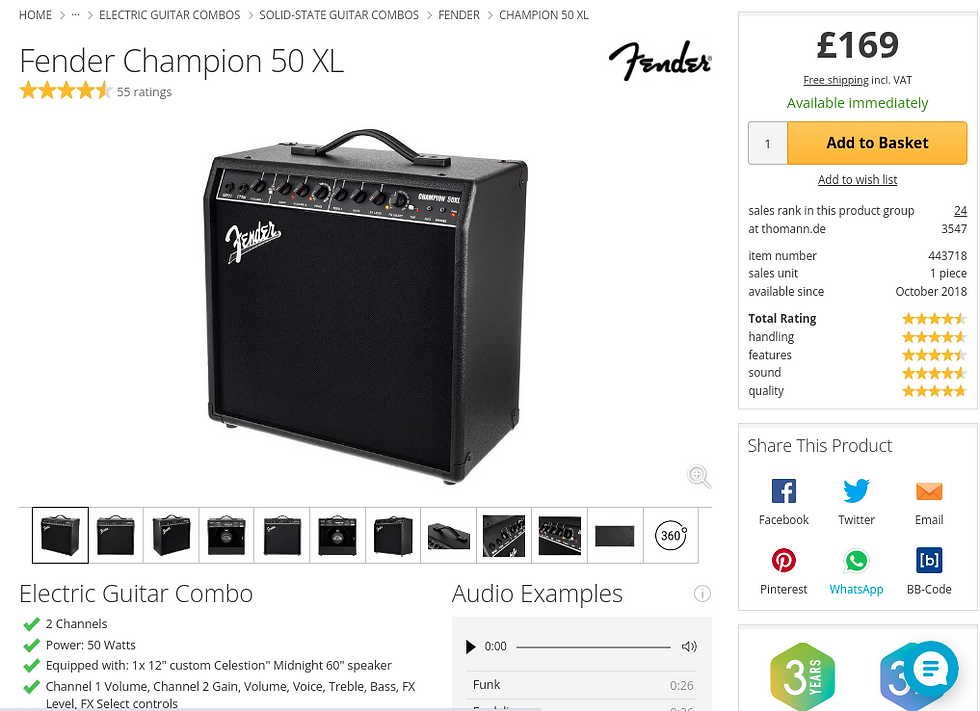


























Comments